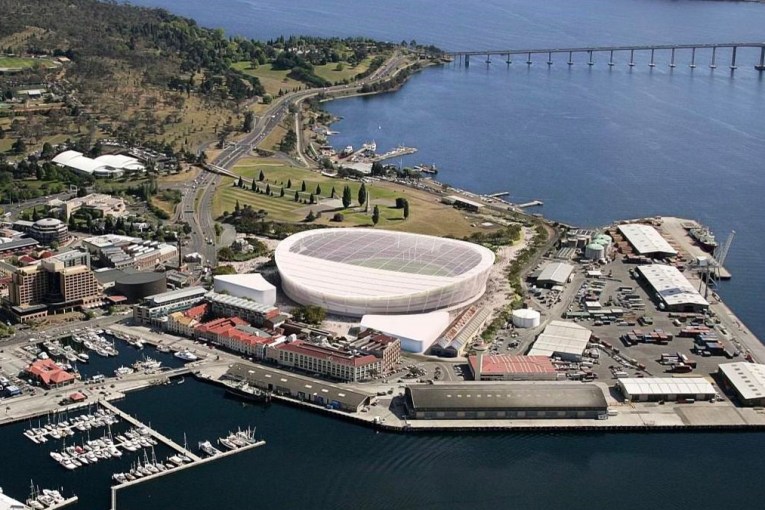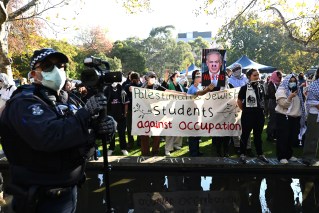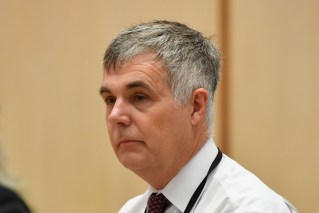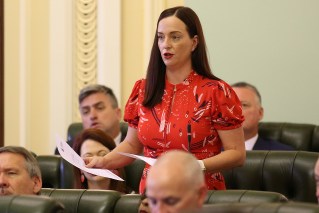Michael Pascoe: There’s a quantifiable cost to George Pell’s style of climate denial

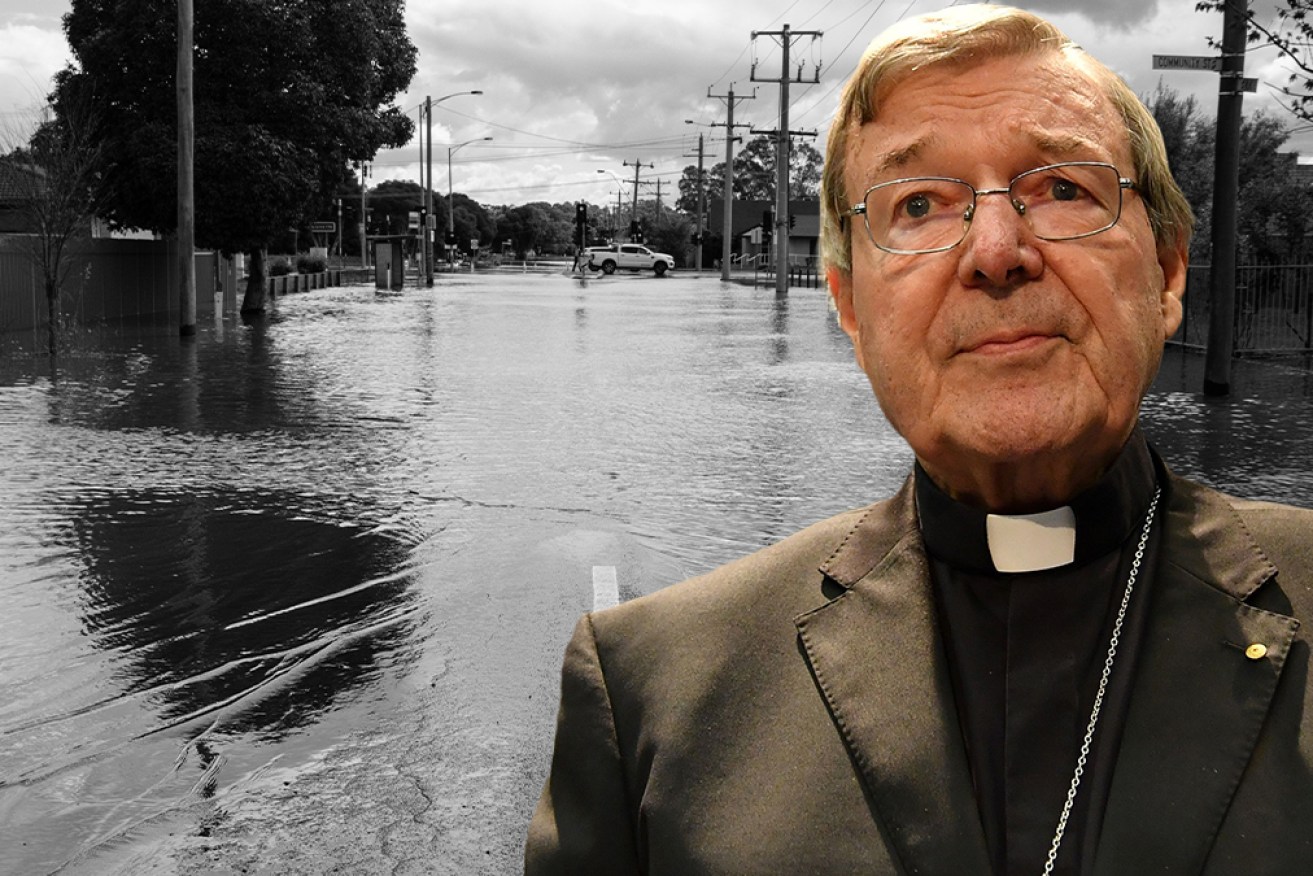
Insurance companies should be listened to on climate change over religious leaders like Pell, Michael Pascoe writes. Photo: Getty/TND
There is no evidence that George Pell ever advocated the burning of those he considered heretics, but then again, he was a traditionalist and very much a man of another century.
Which century is moot, though the 17th would have been a good fit given Cardinal Pell’s most demonstrable area of pig-headed ignorance – his unrepentant climate denialism.
The passion he devoted to promoting carbon dioxide and criticising “neo-Marxist” environmental “cultists” would have been right at home in hauling Galileo before the Roman Inquisition, banning his book and forcing him to deny the Earth revolved around the Sun – clearly heresy.
Such is hardcore “conservatism” in any century.
And Cardinal Pell remained hard at putting his idea of faith ahead of science right to the end, not just in cowardly anonymous “memos” but under his own name in the conservative comic, The Spectator, which in Australia outbids the Murdochs’ The Australian as the home of ongoing climate denialism and the loonier end of the right-wing’s culture war.
While attacking the Catholic Synod of Bishops as a “toxic nightmare”, Cardinal Pell – Tony Abbott’s nomination for sainthood – included:
“The two final synods in Rome in 2023 and ’24 will need to clarify their teaching on moral matters, as the Relator (chief writer and manager) Cardinal Jean-Claude Hollerich has publicly rejected the basic teachings of the Church on sexuality, on the grounds that they contradict modern science.”
Ah, modern science – the work of the devil, to be sure.
Faith, not facts
Cardinal Pell apparently fancied himself as a bit of a climate scientist as he went to considerable effort attacking climate change, doing actual harm in the process by egging on the efforts of Mr Abbott to keep the carbon pumping out.

The Lismore floods in February 2022 were just one of the flood disasters in Australia last year.
Faith can only be a matter of faith – an invisible, unmeasurable, internal belief.
Climate change, on the other hand, can be measured in a number of ways. Using degrees centigrade is the most obvious, but dollars are the most convincing.
There are no Pellsian climate deniers in the insurance industry. There haven’t been for many years as the dollar cost of climate change is counted.
Insurance industry counts the cost
The insurance industry bible for the cost of natural disasters is the annual summary by Munich Re, one of the world’s biggest insurance and reinsurance companies.
The 2019 report counted 820 natural catastrophes causing overall losses of $US150 billion which was “broadly in line with the inflation-adjusted average of the past 30 years”.
Just three years later the average of the past five years, adjusted to inflation, is $US270 billion.
The 2022 score was $US270 billion, down from the particularly expensive $US320 billion in 2021.
Munich Re was clear about the reasons.
According to the company’s chief climate scientist, Ernst Rauch: “Two factors should be kept in mind when considering the 2022 natural disaster figures. Firstly, we are experiencing La Niña conditions for the third year in a row. This increases the likelihood of hurricanes in North America, floods in Australia, drought and heatwaves in China, and heavier monsoon rains in parts of South Asia. At the same time, climate change is tending to increase weather extremes, with the result that the effects sometimes complement each other.”
Intriguingly, Munich Re places a higher cost on Australia’s 2022 floods than the federal government.
Treasurer Jim Chalmers last week said “modelling” showed last year’s severe floods cost the economy $5 billion. Munich Re reckons it was nearly double that at $9.5 billion ($US6.6 billion).
Just Australia’s insured losses totalled $5.6 billion ($US3.9 billion), Munich Re states.
(If it’s a choice between trusting Treasury modelling and insurance companies counting dollars, I’ll back Munich Re.)
Former colleague Glenn Dyer has put the floods’ cost in further context – it is Australia’s biggest ever financial disaster, easily topping the $5.3 billion cost of the collapse of HIH Insurance in 2001.
Writing in Share Café, Mr Dyer said the Munich Re report explains IAG’s announcement that it will have to take on more of its insured risks this year.
The cost of reinsurance is going up for all our insurers.
And that means higher premiums for customers and greater risk for insurance companies.
There can be a big difference between total losses and insured losses depending on the country where the disaster occurs and the type of disaster.
The people of some countries are chronically under-insured, while in any country, there tends to be relative under-insurance for floods.
Thus while Pakistan’s floods last year caused losses of $US15 billion, insured losses were “minor”, not deserving a number on the Munich Re scorecard.
Australia’s floods rate fourth in the world for overall losses, but we came second by Hurricane Ian’s $US60 billion for insured losses in the US.

Cardinal George Pell gave part of his evidence to the royal commission via video from Rome.
The late Cardinal Pell’s science-denying faith won’t help any of us with the cost, but at least there is no longer a danger of climate scientists or insurance company executives being burned at the stake.
Uncountable damage
Cardinal Pell’s other failures are not as easily counted.
The Royal Commission into Institutional Responses to Child Sexual Abuse recorded his failure to protect children from paedophile priests, but there’s no Richter Scale for the effect of his bullying conservative certitude or his discomfort with, and dismissal of, women.
Perhaps the best appraisal of Cardinal Pell was inadvertently penned by him while listing for his Spectator faithful what he was most clearly against:
“The ex-Anglicans among us are right to identify the deepening confusion, the attack on traditional morals and the insertion into the dialogue of neo-Marxist jargon about exclusion, alienation, identity, marginalisation, the voiceless, LGBTQ as well as the displacement of Christian notions of forgiveness, sin, sacrifice, healing, redemption. Why the silence on the afterlife of reward or punishment, on the four last things; death and judgment, heaven and hell?”
And don’t forget that evil environment cult.
